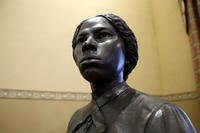Because he was in law school when he received his draft notice, this month's guest columnist could easily have taken a student deferment. He chose instead to become a foot soldier, earning a Bronze Star for valor in Vietnam.
In 1982, he became the first enlisted Vietnam veteran elected to Congress. He was elected governor of Pennsylvania in 1994 and was reelected in 1998. In 2001, following the attacks of 9/11, President George W. Bush named him to lead the first White House anti-terrorism office. Two years later, he became the first secretary of the newly created Department of Homeland Security. He now heads his own Washington consulting firm, Ridge Global LLC.
Here's his account of his time in uniform and the impact it has had on his life.
My first contact with the military came in the summer of 1968. Having returned to my home in Erie, Pennsylvania, after my first year of law school, I received my draft notice.
Reaction in the family was mixed. A younger brother thought a personal letter from President Nixon was something special. My dad was not quite so enthusiastic, but as a World War II Navy veteran, he understood. I was called to service and I would serve. That fall, after a summer working in construction, I reported for basic training at Fort Dix, New Jersey.
I followed that with Advanced Infantry Training at Fort Polk, Louisiana. At Polk, I was the oldest guy in the unit and the only college graduate in my platoon. My undergraduate degree from Harvard guaranteed a few extra push-ups. After that, I went to Fort Benning, Georgia, to the NCO Academy at the infantry school. The Army needed sergeants, and as soon as I got my stripes, I was on my way to Vietnam.
We worked in I Corps, along the South China Sea, and dealt with Vietcong and booby traps generally. Members of our five-man unit were assigned as advisers to a Vietnamese infantry company, but sometimes we operated on our own, going into the field by ourselves.
I was only a few minutes into my maiden patrol when I first got shot at, and the threat continued every day of my tour. I was discharged a few months ahead of schedule because of illness and went back to law school -- and, eventually, to a civilian career.
|
BREAK TIME: Army Staff Sgt. Tom Ridge -- later to become a congressman, governor and cabinet officer -- was in I Corps as an adviser to South Vietnamese forces in 1968. |
I learned many lessons in the service that I have applied throughout my life. Many would influence my behavior for the rest of my career.
I learned quickly that rank doesn't automatically make you a leader. Yes, relying solely on rank can generate compliance among subordinates, but it doesn't draw out the kind of performance from people that a good leader can inspire. Leaders get commitment.
Leading a small unit confirmed in my mind the notion that everyone in an organization has value, even if that person is very junior, and that listening to people is important. A radio operator once reminded me of the obvious -- that we shouldn't be taking a trail we'd used the day before. He may have saved our lives that day.
I learned that maintaining good and consistent communications with your team is important; every plan of action should be accompanied by at least one alternative; and that rigorous training together builds confidence and develops people's leadership skills.
I'll always be grateful to the Army for all those lessons. Yes, I might have learned some of these things later on in life, but I'm not sure I would have learned them all. And I've used them repeatedly, no matter what job I've had in the civilian world. Leadership responsibilities in the military provide a basis for how to work with people, no matter what you do.
I'm as proud of my service in Vietnam as an enlisted man as I am of anything I've ever done -- in Congress, as governor or as secretary.
And I'm glad I had a chance to serve.
Answering the Call is a monthly series of short articles by prominent men and women discussing the impact of their time in the military on their later lives.
Want to Know More About the Military?
Be sure to get the latest news about the U.S. military, as well as critical info about how to join and all the benefits of service. Subscribe to Military.com and receive customized updates delivered straight to your inbox.
















